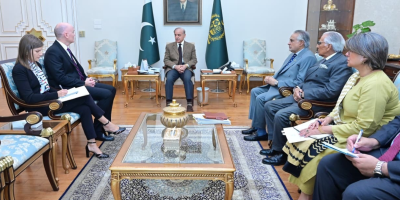Controversial Cyber Crime Bill approved by NA

ISLAMABAD: The controversial Prevention of Electronic Crimes Bill 2015 was approved in the National Assembly (NA) on Wednesday.
The bill must also be approved by Senate before it can be signed into law.
The draconian bill ─ which has been criticised by the IT industry as well as civil society for curbing human rights and giving overreaching powers to law enforcement agencies ─ was submitted to the NA for voting in Jan 2015 by the Ministry of IT.
It was then referred to the NA Standing Committee on Information Technology and Telecommunication to address concerns raised by the opposition members and stakeholders from the industry.
A draft of the cybercrime bill was then forcefully cleared by the standing committee in September before being forwarded to the NA for final approval without showing committee members the copy of the bill.
According to critics, the proposed bill criminalises activities such as sending text messages without the receiver’s consent or criticising government actions on social media with fines and long-term imprisonment. Industry representatives have argued that the bill would harm business as well.
Online criticism of religion, the country, its courts, and the armed forces are among subjects which could invoke official intervention under the bill.
Scratch through the surface of the Bill, and there is much that is controversial.
Critics say that a government-led sub-committee put in time to modify the draft that had originally been chiselled by the IT ministry and industry stakeholders and activists — the latter now holding that they were excluded from the process of finalising the draft.
What now stands to be tabled in the National Assembly, they say, is a loosely worded piece of legal drafting that not just betrays a poor grasp of the technical aspects of digital communications and the internet, but also contains several deeply problematic clauses that are open to misinterpretation and may be used as crutches for censorship and the suppression of views a government finds unpalatable.
Related News

Romanian Embassy concludes cultural days with Christmas concert
Ambassador of Romania to Pakistan, Dan Stoenescu, warmly welcomed the guests and highlighted the importanceRead More

PM Shehbaz Reaffirms Solidarity with Australia After Bondi Beach Attack
Ansar M Bhatti ISLAMABAD, DEC 19 — Ambassador Tim Kane, the newly appointed High CommissionerRead More


Comments are Closed